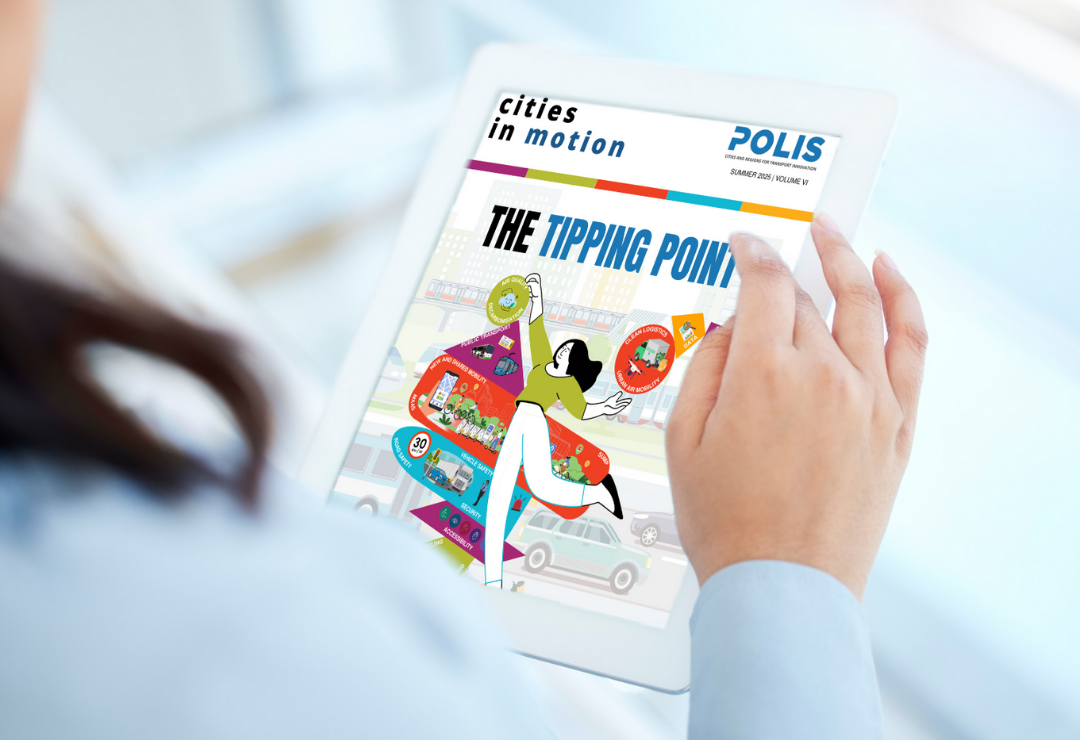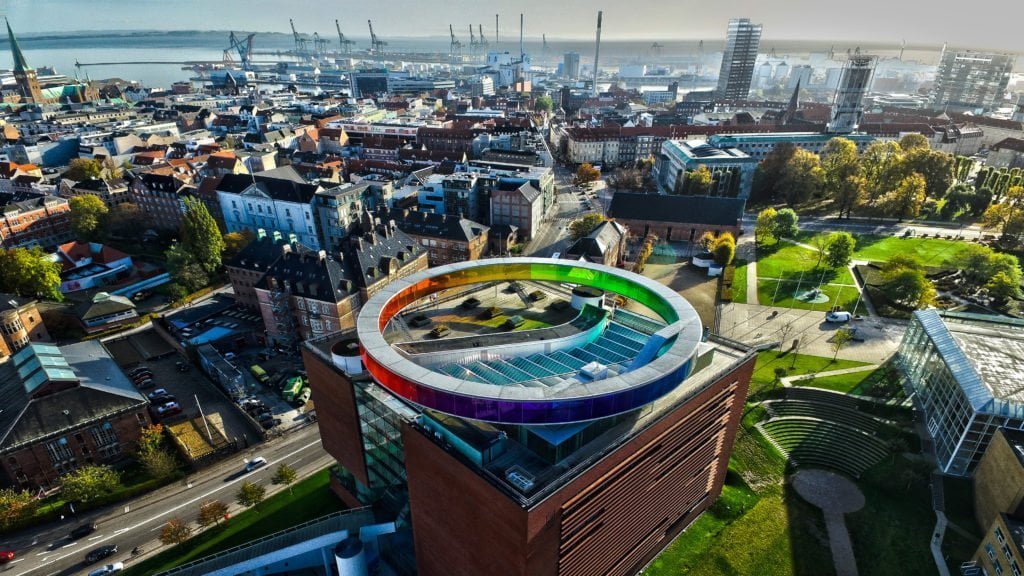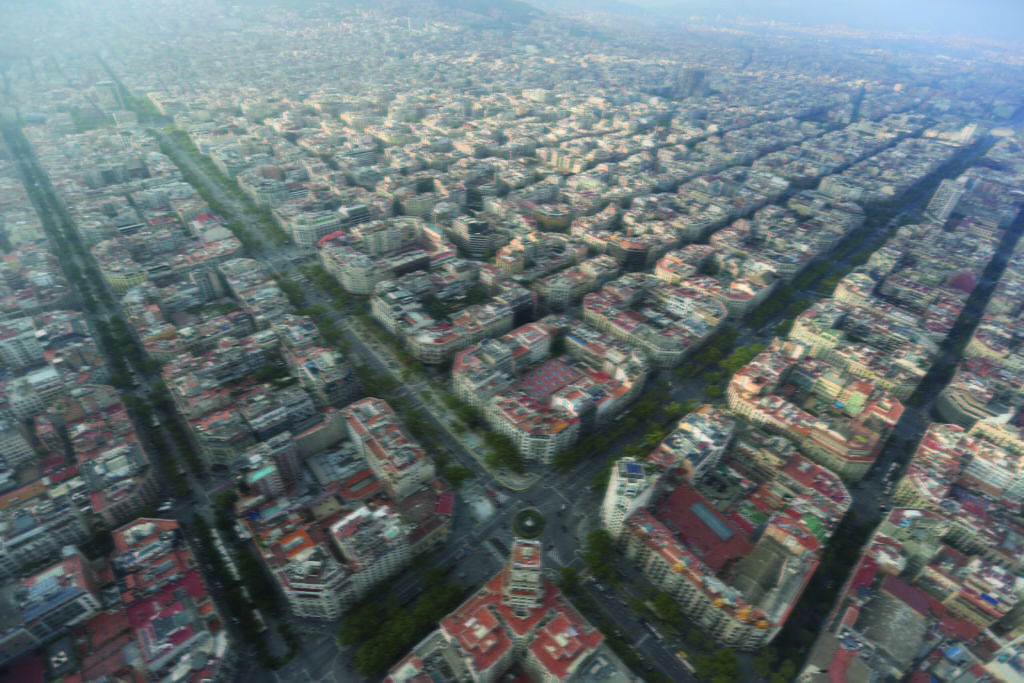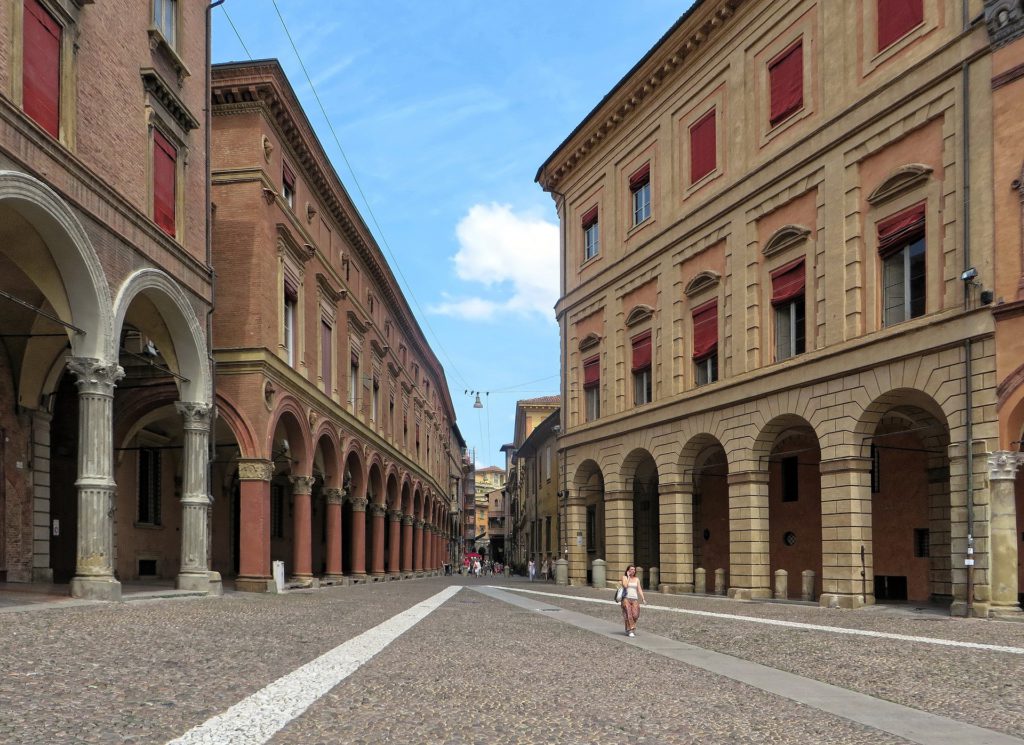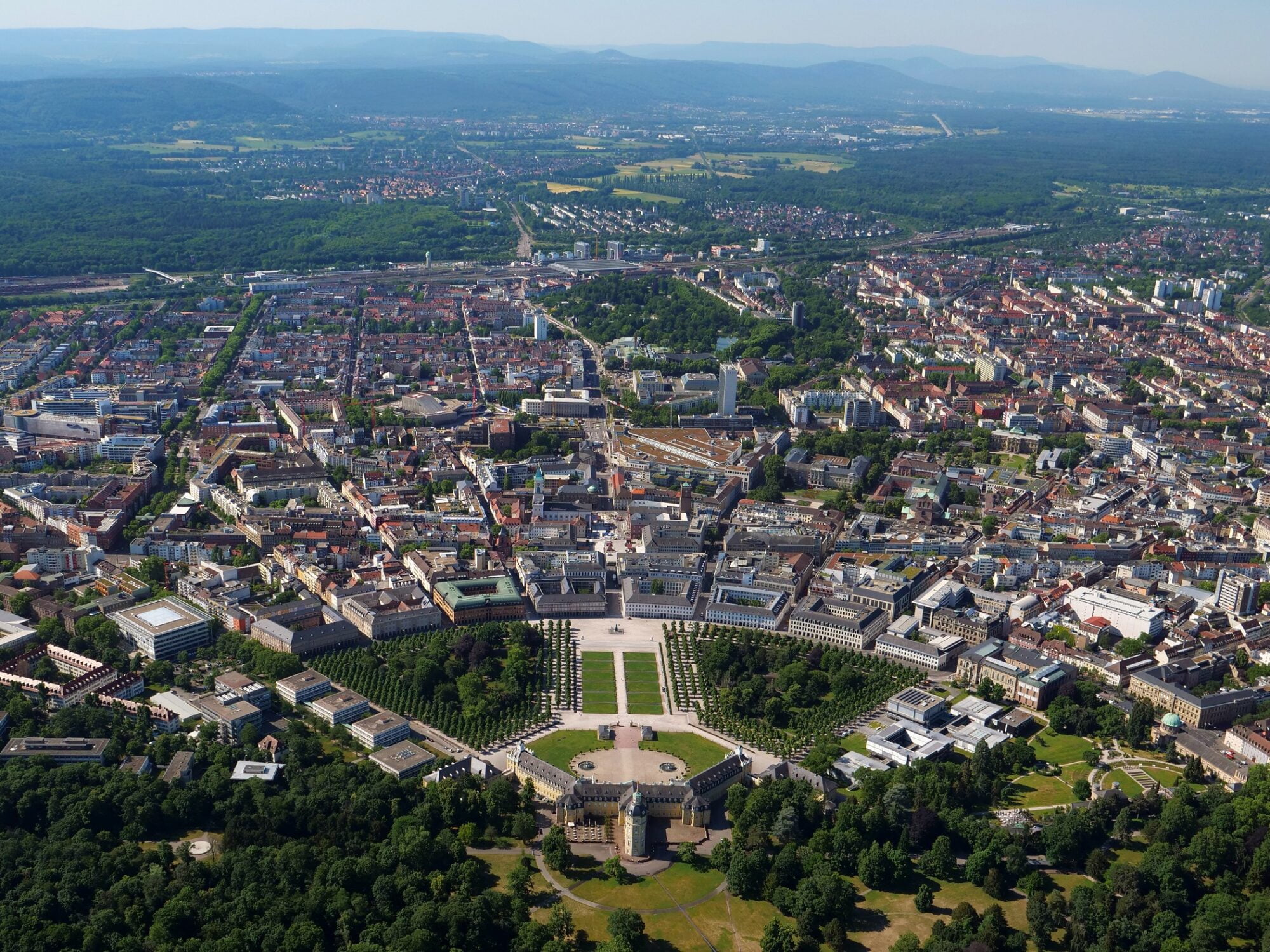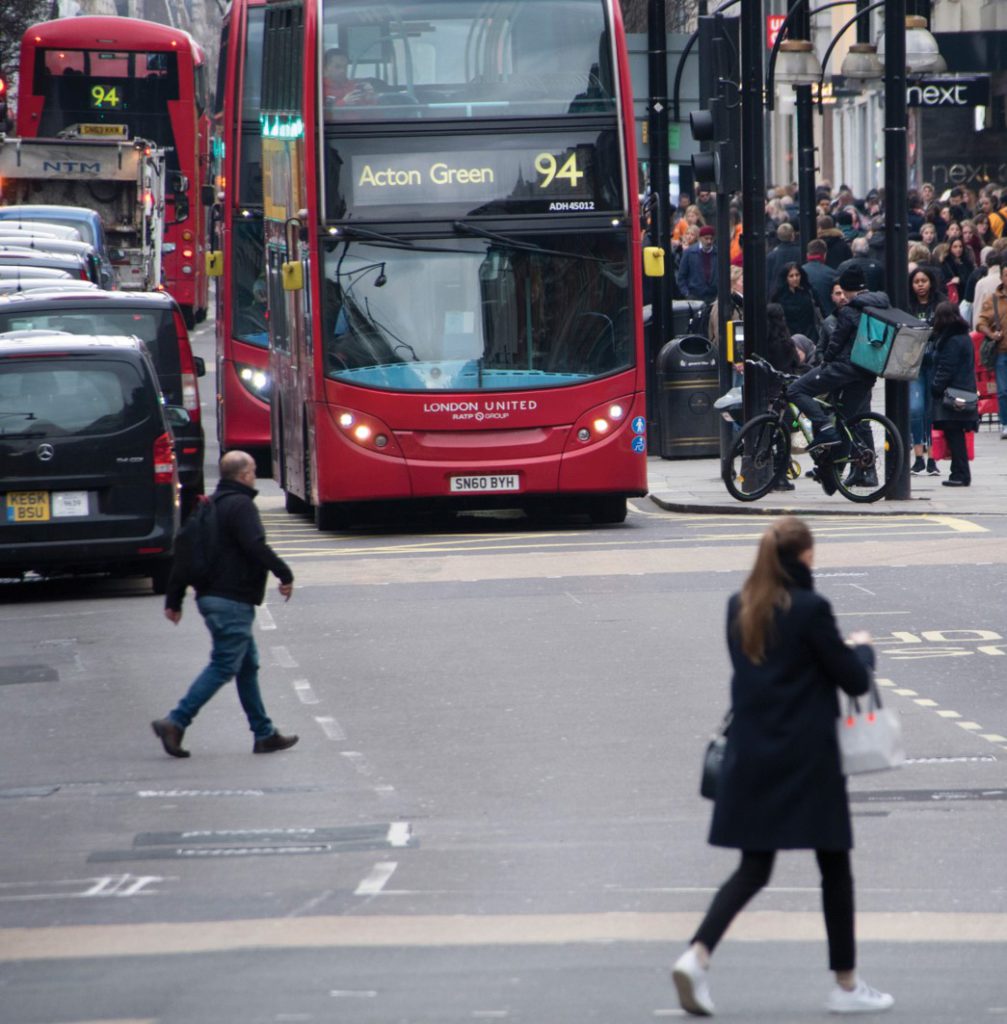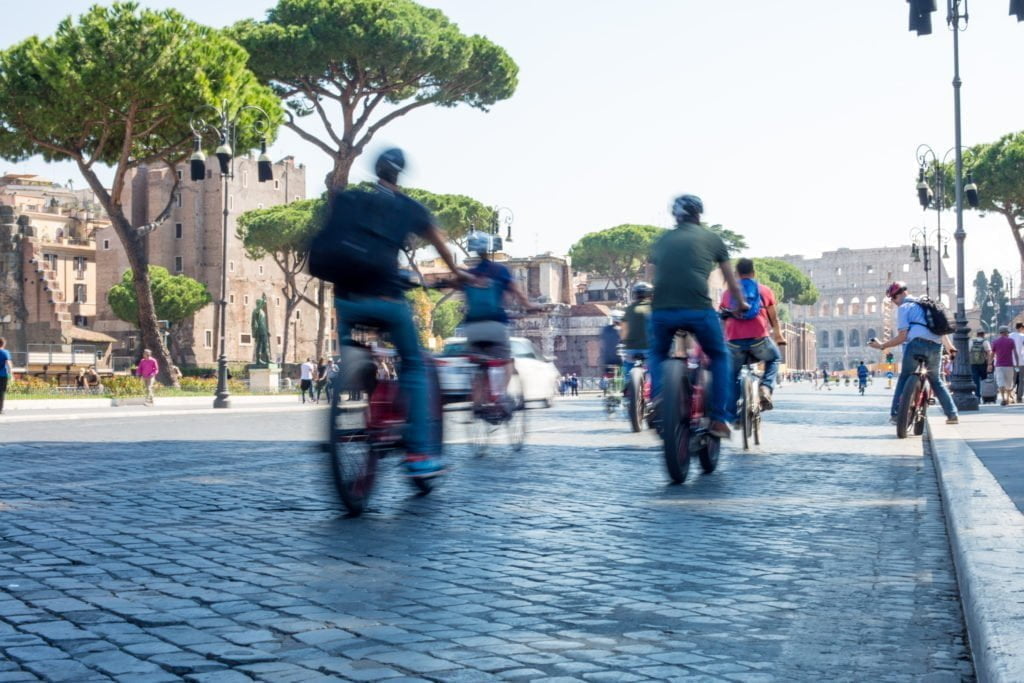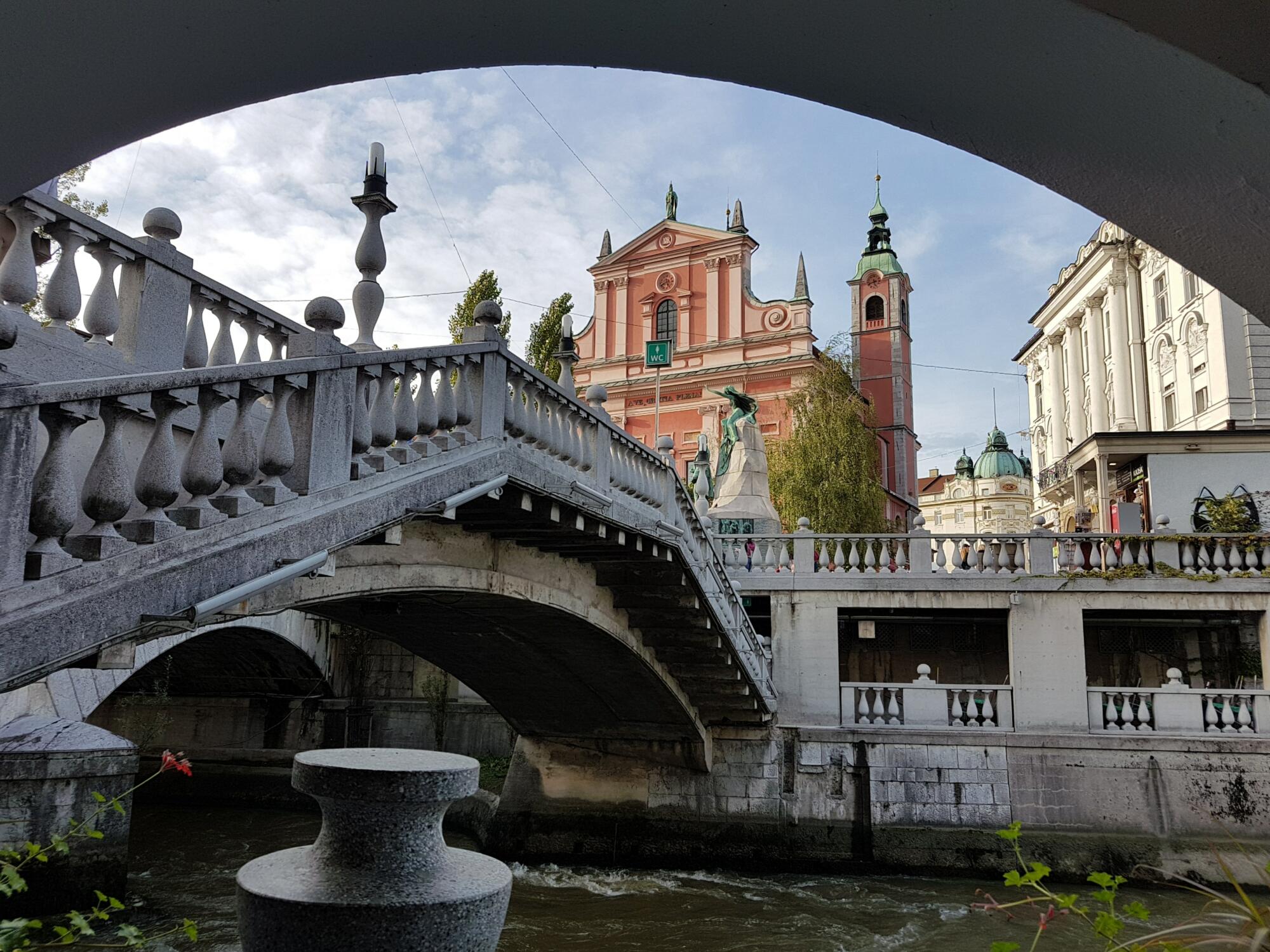Read now Cities in motion #6, ‘The Tipping Point’
POLIS proudly launches its sixth edition of the magazine Cities in motion ‘The Tipping Point’. This issue takes a critical look at the current direction of urban mobility.
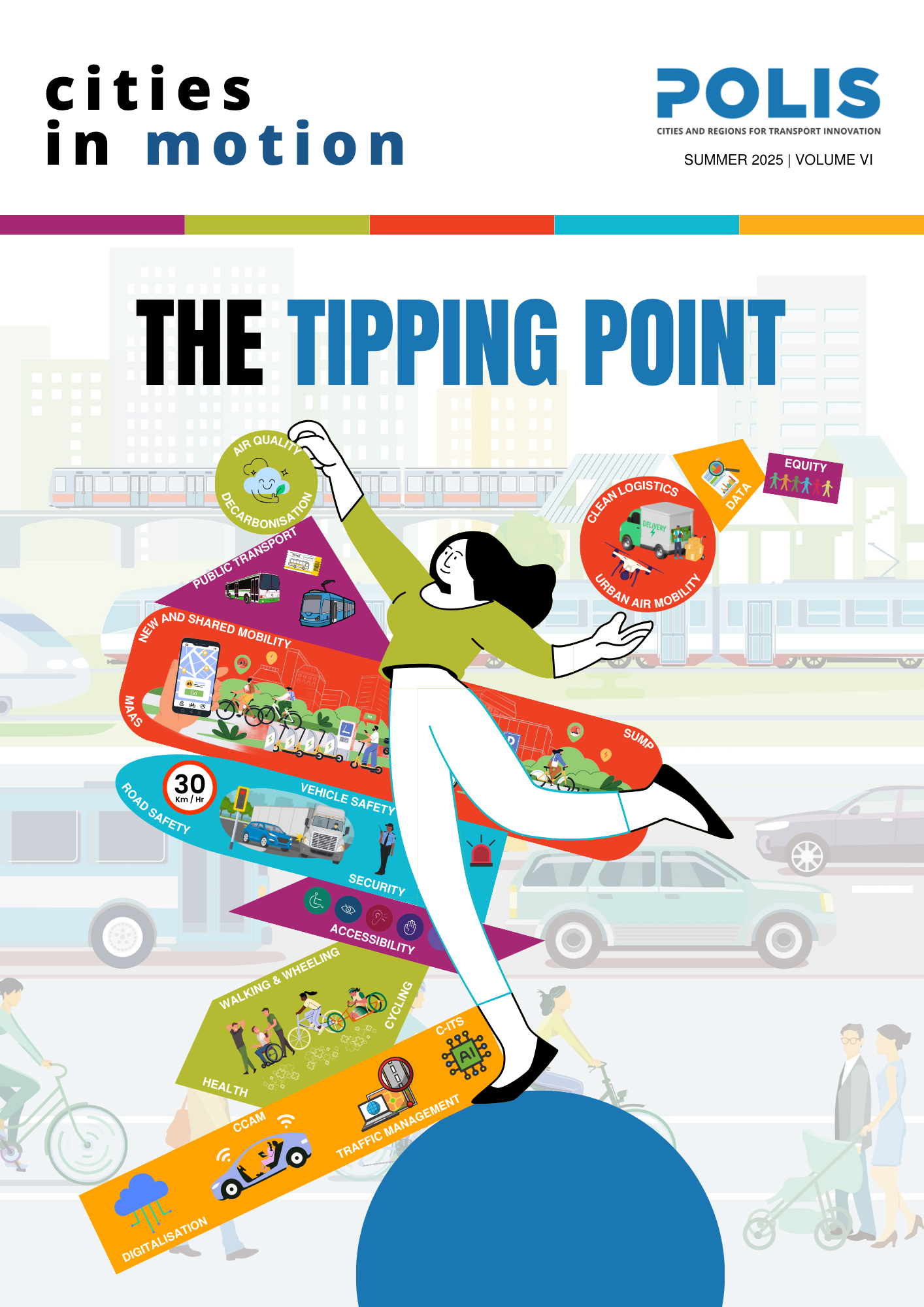 Through 17 articles, 'The Tipping Point' is a conversation on the present and future of mobility. In times of urgency and uncertainty, there seems to be no space for aspiration and implementation. Despite this tension, cities and regions are reacting to the challenges, prioritising innovation and sustainability.
Through 17 articles, 'The Tipping Point' is a conversation on the present and future of mobility. In times of urgency and uncertainty, there seems to be no space for aspiration and implementation. Despite this tension, cities and regions are reacting to the challenges, prioritising innovation and sustainability.
Without ignoring this complex reality, volume #6 has sought innovative and inspirational stories that illustrate how European towns, cities, and regions are driving the way forward.
As POLIS Secretary General Karen Vancluysen observes:
‘Cities are not waiting passively for solutions to arrive. They are experimenting, recalibrating, and, crucially, learning as they go.’
Table of contents
Access
- London’s Bold Bet HERE
- Transport Poverty on the Agenda HERE
- Connecting the Dots: Interview with Gustav Friis, Katia Kishchenko, and Chelsea Tschoerner-Budde, with the contribution of Françoise Guaspare HERE
- Flying into the Future: Interview with Vries Strookman and Roel Brandt HERE
Environment & Health
- From Paper to (De)pavement: Interview with Reena Mahajan HERE
- Carrot and Stick: Interview with Juan Carlos Escudero-Achiaga HERE
Governance & Integration
- Karlsruhe Mobility Lab Forward HERE
- Mobility Hotel All In One HERE
- Riga Rules: Interview with Mihails Potihonins HERE
- Staying AI-ready: Interview with German Castignani and Pascal Lhoas HERE
- Paradigm Shift: Interview with Aljaž Plevnik, Luka Mladenovič, Andraž Hudoklin, Mojca Balant, and Tom Rye HERE
- Talk MED to Me HERE
- Leading with Courage: Interview with Eugenio Patanè HERE
Safety & Security
Traffic Efficiency
Creativity in challenging times
As the digital and sustainable transition seems to be questioned, 'The Tipping Point' explores the latest policy developments in transport, such as the revised TEN-T Regulation, which calls for a rethink of urban nodes.
In addition, special attention is dedicated to rising challenges. Streets are increasingly crowded by oversized SUVs, which represent a threat to both the environment and other road users. At the same time, poorly regulated micromobility devices also negatively impact urban spaces.
This is accompanied by growing transport poverty, which affects millions of Europeans. The Social Climate Fund has the potential to address the structural causes behind transport poverty, but its outcome will depend on how the funds are used.
Experimenting and learning
Finding solutions to complex challenges is no easy task, but inspiration may come from looking at what others are doing. The magazine features success stories from smaller towns like Vitoria-Gasteiz to capitals such as Riga, Amsterdam, and London, which are rethinking their urban planning to integrate sustainability with liveability.
Another key theme is technological innovation. As AI is revolutionising every sector, cities are increasingly implementing tools like Geo for Cities or digital Traffic Circulation Plans (TCPs), paving the way for a safe and ethical use of technology in transport governance.
Leaders pave the way
Through this volume, what emerges is how bold leadership makes the difference. The POLIS Leadership Summit in Rome has encapsulated the resilience of urban leaders, as Deputy Mayor Eugenio Patanè notes. Other inspiring leadership stories come from all over the world, as demonstrated in the interview with architect and urban planner Reena Mahajan, and from the Slovenian Transformative Transport Planning Research Group UIRS.
Urban mobility is transforming, evolving, but what emerges from all these stories is that innovation and leadership are the keys to changing urban mobility. As Secretary General Karen Vancluysen denotes:
‘This issue is a conversation: one that we invite you to join, question, and contribute to. Let us keep moving, together.’
You can now read Cities in motion Volume VI: 'The Tipping Point' in two formats:
